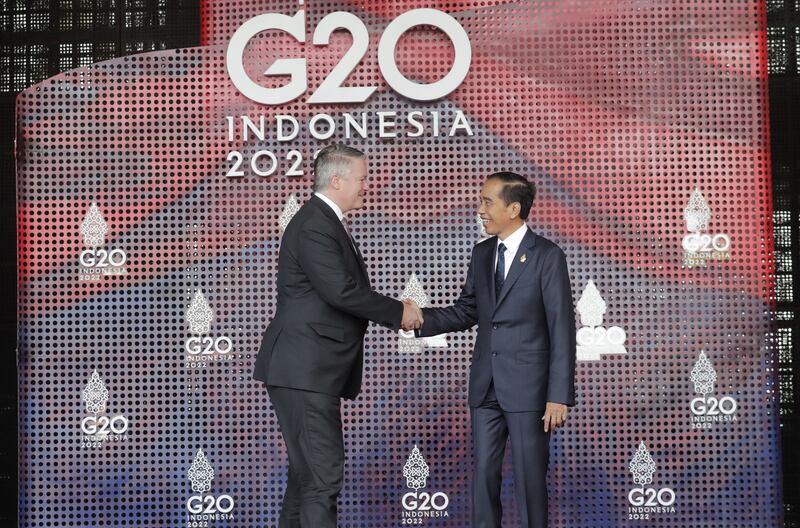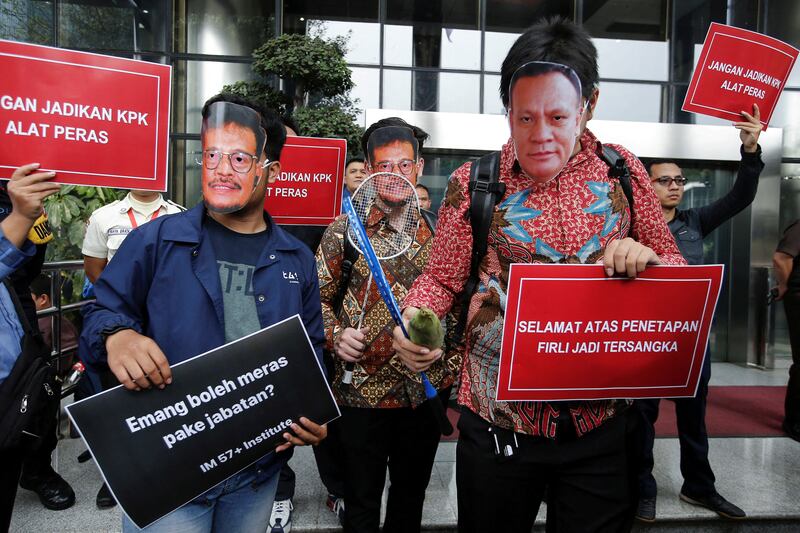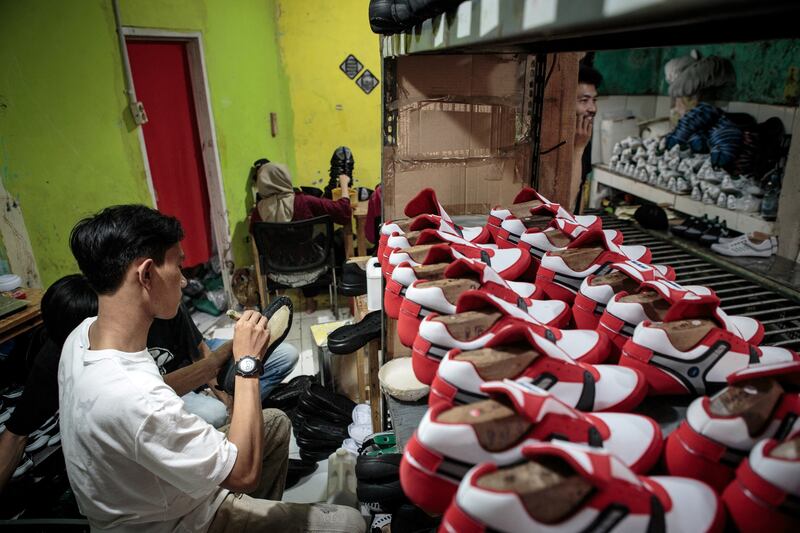Indonesia’s aspirations to join a club of mostly rich democracies will be an uphill task because it has a long way to go to align its governance, anti-corruption, environmental, and other policies with the group’s stringent norms, analysts said.
The 38-member Organization for Economic Co-operation and Development (OECD) said last week it had decided to begin discussions with Indonesia to grant it membership. Jakarta, for its part, wants to join the elite club as a means to make Indonesia a developed country by 2045.
Indonesia may be Southeast Asia's largest economy, but it is still a developing country, according to statistics from the United Nations and global economic bodies.
If allowed into the OECD, Indonesia would become the first Southeast Asian member of the Paris-based group, but it very likely will be years before the outcome of its membership bid is known. Japan and South Korea are the only Asian members of the group.
Becoming a part of the OECD won’t be without challenges, said Bhima Yudistira, an economist at the Center for Economic and Law Studies (CELIOS).
“Joining the OECD will require many rules to be harmonized with the OECD standards, especially regarding licensing, business competition and trade,” Bhima told BenarNews.
Essentially, the exclusive body sets standards and best practices in these areas as well as investment, taxation, environment, governance, anti-corruption and human rights, Bhima said.
The OECD also works with its members and other partners to share data, analysis and policy advice on various economic, social and environmental issues.
Although Indonesia may aspire to become an OECD member by working to boost its economic competitiveness and accelerate its structural transformation, there is a yawning chasm between aspirations and reality.

Indonesia’s bid to join the OECD is part of its long-term vision to become a high-income country by 2045, when it will celebrate the 100th anniversary of the fight for independence from Dutch colonial rule, the government said.
To achieve this goal, Indonesia will need to sustain a high economic growth rate, diversify its economy, improve its human capital and address its social and environmental challenges, the economic affairs ministry said in a statement.
“Indonesia’s accession to the OECD is one of the government’s strategies to achieve the Golden Indonesia Vision 2045, which needs the role and support of all stakeholders,” Ferry Ardiyanto, an assistant deputy at the economic affairs ministry, said in a statement.
OECD Secretary-General Mathias Cormann hailed as “historic” the group’s decision to start accession talks with Indonesia.
“As the largest economy in Southeast Asia and the world’s third largest democracy, Indonesia is a significant global player, providing important leadership across its region and beyond,” he said in a statement.
Nothing historic has quite happened yet, though.
Indonesia would have to undergo a comprehensive review by 23 OECD committees and would need the unanimous consent of all 38 member-states before it is allowed into the hallowed club.
And that could take years and years.

Much before all that, though, Indonesia may face difficulties in meeting some of the OECD criteria, analysts said.
Take, for instance, the country’s persistent problem with corruption at the highest levels.
Graft has purportedly been a focus of several governments since the democratic era began in 1998, but hardly any progress has been made. In fact, critics say the situation has worsened in the last few years under current, two-term President Joko “Jokowi” Widodo.
Just last November, a high-profile case revealed that a fox may have been guarding the henhouse, or as it were, several foxes may have been involved.
The chain of corruption in this case was extraordinary, reflecting how the scourge works downward from the upper echelons.
The chief of the country’s main anti-corruption agency (KPK) was suspended – and then fired in December – after being suspected of demanding bribes from a former minister in exchange for leniency in a graft case against him.
As for the minister, he had resigned in October after being questioned for allegedly soliciting bribes from his subordinates.
It is no wonder then that Indonesia ranked 115th out of 180 countries in Transparency International’s 2023 Corruption Perception Index.
The index measures how corrupt each country’s public sector is perceived to be, according to experts and businesspeople.
The OECD has a strong anti-corruption agenda, which includes instruments to prevent, detect and sanction corruption in the public and private sectors.
Another problem that Indonesia faces is respecting and protecting human rights.
Jakarta has ratified most of the core international human rights treaties, but it still is accused of serious breaches such as unlawful or arbitrary killings, torture, arbitrary arrest and restrictions on free speech and assembly.
Among other human rights problems in the country are alleged abuses by security forces in the rebellious Papua region, discrimination against LGBTQ people, and laws that criminalize blasphemy.

Human rights and environmental abuses are also allegedly rife in Indonesia’s nickel processing sector – the country holds the largest reserves of nickel.
In its race to become a developed country, Indonesia is rapidly expanding the industry, driven by the global demand for nickel in electric vehicle batteries, smartphones and other devices.
Coal, the dirtiest of fossil fuels, powers 65% of Indonesia’s energy needs and the energy sector accounts for nearly half of the country’s emissions. And yet, Indonesia left out captive coal-fired electricity plants from its plan to wean off coal, for which rich nations had promised it U.S. $20 billion in financing.
Among other challenges to OECD membership critics cite is Indonesia’s complex legal system, which they say leads to inconsistency and inefficiency. Additionally, frequent changes in laws and regulations, overlapping jurisdictions, and widespread corruption only to weak enforcement, they add.

However, if Indonesia does manage the comprehensive reforms that OECD membership requires, and is admitted into the group, it could see many potential benefits, said Bhima from CELIOS.
For instance, he said, an improvement in Indonesia’s law enforcement could, among other things, help combat corruption and tax evasion, and enhance environmental protection and energy transition.
The Southeast Asian nation could also learn to develop its industrial and technological capacity from the best practices of OECD members, he added.
“Some of the standards adopted from the OECD can strengthen Indonesia’s position at the global level and make it more open to quality investment opportunities from developed countries,” he said.
“[I]ndonesia can learn a lot from the OECD on how to prepare a better economic structure, such as strengthening its manufacturing and technology sectors.”
Indonesia’s business sector would also gain from OECD membership, said Drajad Wibowo, a senior economist at the Institute for Development of Economics and Finance.
“[I] it will create a fair and confident environment for companies from OECD countries to work with, invest in and trade with Indonesia,” he told BenarNews.
“The challenge is for the technical team to get ready for the accession process, according to what the OECD wants.
